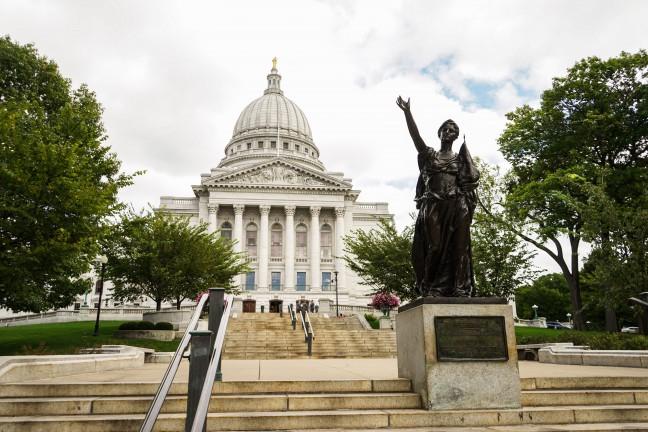The Democratic Party has hit an ideological crossroads. It appears that it must decide whether it wants to push further left or drift toward the center.
According to a Pew Research study, “millennials lean to the Democratic Party to a much greater degree than other generations.”
Among many reasons, this can be explained by greater diversity and the fact that millennials face unprecedented economic and social burdens. Regardless of what one may believe, it is clear that millennials lean left, and this trend shows no signs of slowing or reversing.
But in pursuit of progressiveness, Democrats risk creating an inability to achieve unrealistic goals or compromise with the other side of the aisle. Our democracy was built off of pragmatism. If each party continues to sprint to the edges of their side of the spectrum, Congress will no longer be able to make effective legislation. Rather, one party will just do everything it can to gridlock the other until the next election.
Democrats must be strategic, realistic in order for blue wave to reach governor’s office
If Democrats hope to succeed in the 2020 presidential election, a more moderate candidate stands a better chance of winning the hearts of undecided voters than an extremely left-leaning candidate does. This, then, poses a dilemma for members of the Democratic Party — do they prefer ideologically purity, or do they prefer to win elections?
Politicians across the aisle face the same problem, as several swing seats in the House determine the fate of elections. Both parties trade wins, but the more moderate candidate from either party will usually emerge victorious.
In our current political moment, this problem just happens to lie with the Democrats. The fundamental nature of a swing seat means that moderates hold more vulnerable seats than members from deep-red or blue districts.
Given the vulnerability they face in elections, moderates’ voting records tend to be closely aligned with the interests of their constituents. Simply put, an elected official in a hot seat will likely vote moderately. This of course can frustrate more radical members of either party, creating the predicament Democrats find themselves wrestling with today — namely, where is their party heading? To the left or to the center?
Progressivism wins in Wisconsin: 2020 candidates need not adopt centrism to appeal to voters
An often forgotten, yet crucial point is that there are “incumbent-crats” who have spent several years accumulating voters. As time progresses, we have seen this contribute to political extremism. When an incumbent retires or is challenged, Democrats will run left and Republicans will run right. Over time, this has hyperextended the far left and far right, thereby minimizing the middle.
This problem can be addressed, but it will require significant change to the current setup.
Simply imposing Congressional term limits would be ineffective, and would in fact have severe consequences. Members of each party would fight to protect their party, and outgoing members would be tempted to curry favors with new members.
Moreover, when term-limits are imposed, society loses a sense of history and established institutional knowledge of how government should operate. Experience and wisdom is just as essential as youth and energy in keeping a country as vast and complex as the U.S. up and running. Like all things, government requires balance.
America needs unification, political crisis for Trump primary challenger to be successful
If districts were drawn by independent commissions instead of politicians, we would see more moderation from both sides. An independent commission would be committed to fairness, not partisanship. This not only balances out the country, but rids us of the gerrymandered districts currently plaguing the nation.
Wisconsin exists as both a swing state and a gerrymandered state. We are home to one of the most conservative districts in the country under Rep. Jim Sensenbrenner, R-Menomonee Falls, and one of the most liberal districts under Rep. Mark Pocan, D-Madison. The idea that these problems don’t lie at our front doorstep is terribly misguided.
In a democracy, it is important that all voices are heard. Those who align with the far left play an important role in shaping the dialogue for this nation, as do those on the far right.
Nonetheless, moderate and incremental steps towards progress will get America a lot further than trying to take massive and unrealistic leaps. Our nation faces an abundance of problems, but none of them can be solved if our politicians can no longer come together and compromise.
Mitch Rogers ([email protected]) is a senior majoring in economics.





















